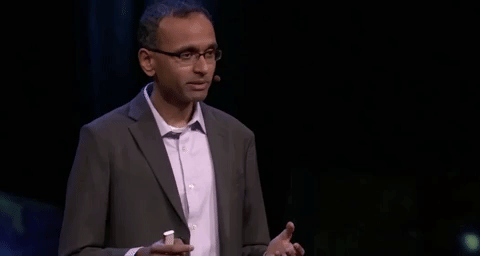News flash: Though the Earth is warming at a hellish pace, outer space is still freezing cold.
And since cooling systems account for 17 percent of electricity use worldwide, it occurred to professor Aaswath Raman, an assistant prof at Penn’s School of Engineering and Applied Science and a prominent voice in the nascent field of radiative cooling, that beaming heat emissions to space could help lower greenhouse gas emissions.
As part of his Ph.D. research at Stanford, Raman devised a multilayer optical material 40 times thinner than a human hair that’s able to avoid getting heated up by the sun while beaming out its own heat to outer space through a precise infrared frequency. Alongside cofounders Eli Goldstein and Shanhui Fan, Raman started a company to develop the technology and bring it to market.
“Our startup, SkyCool Systems, has recently completed a field trial in Davis, California,” Raman said in a recent TED Talk. “In that demonstration, we showed that we could actually improve the efficiency of that cooling system as much as 12 percent in the field.”
Per Crunchbase, SkyCool Systems is the recipient of around $1 million in research grants from the National Science Foundation and the U.S. Department of Energy through its ARPA-e research agency.
Watch Raman explain the science behind his company:
Before you go...
Please consider supporting Technical.ly to keep our independent journalism strong. Unlike most business-focused media outlets, we don’t have a paywall. Instead, we count on your personal and organizational support.
3 ways to support our work:- Contribute to the Journalism Fund. Charitable giving ensures our information remains free and accessible for residents to discover workforce programs and entrepreneurship pathways. This includes philanthropic grants and individual tax-deductible donations from readers like you.
- Use our Preferred Partners. Our directory of vetted providers offers high-quality recommendations for services our readers need, and each referral supports our journalism.
- Use our services. If you need entrepreneurs and tech leaders to buy your services, are seeking technologists to hire or want more professionals to know about your ecosystem, Technical.ly has the biggest and most engaged audience in the mid-Atlantic. We help companies tell their stories and answer big questions to meet and serve our community.
Join our growing Slack community
Join 5,000 tech professionals and entrepreneurs in our community Slack today!

The person charged in the UnitedHealthcare CEO shooting had a ton of tech connections

From rejection to innovation: How I built a tool to beat AI hiring algorithms at their own game

How a laid-off AI enthusiast pivoted to become a founder — while holding down a day job


